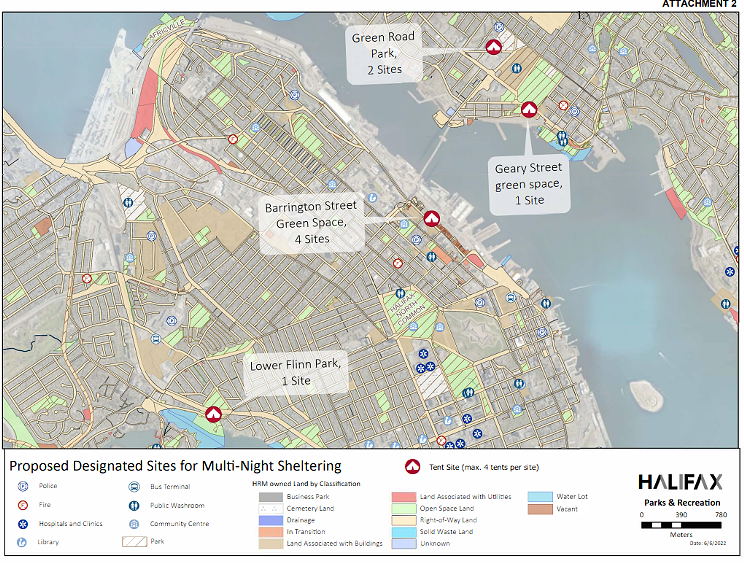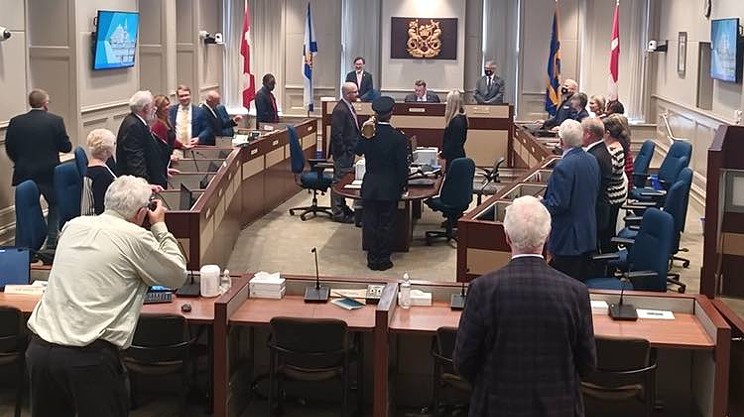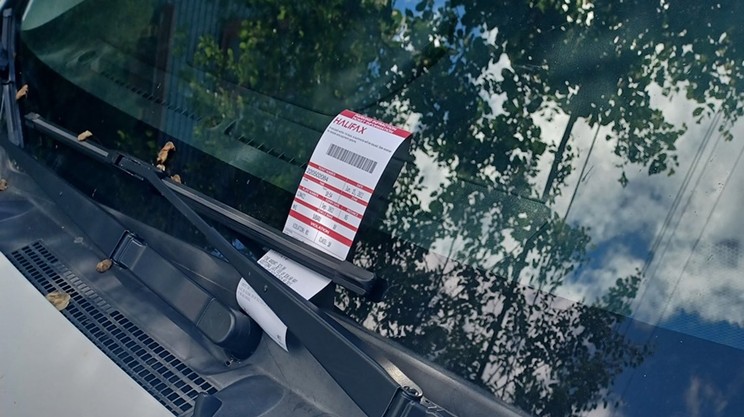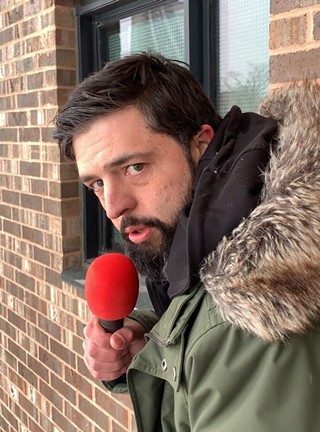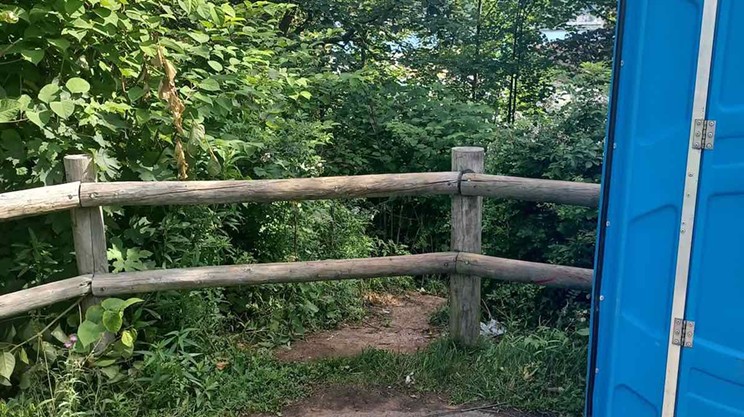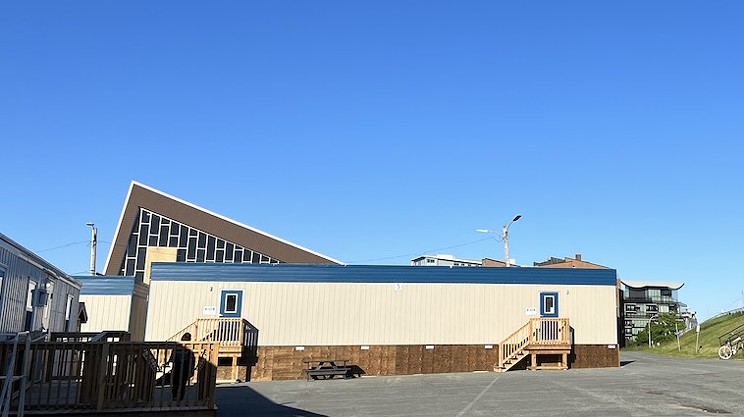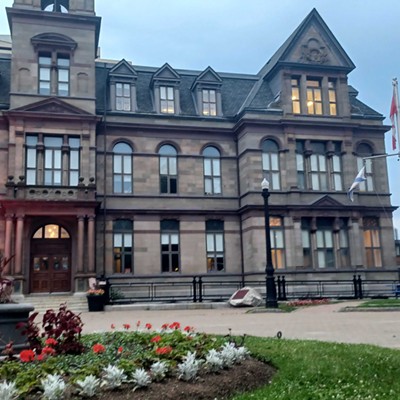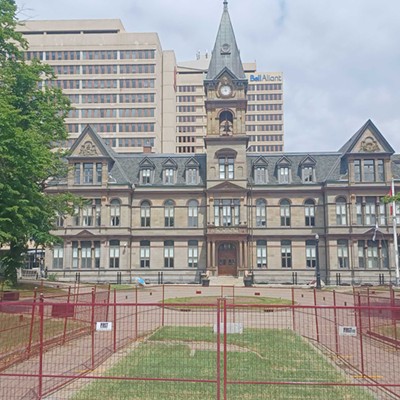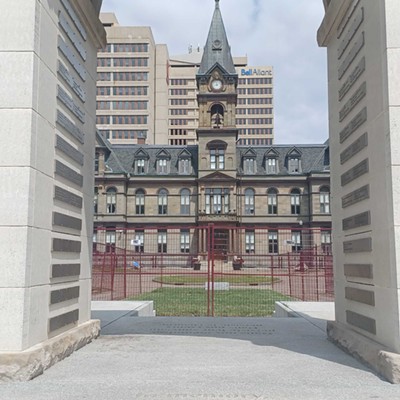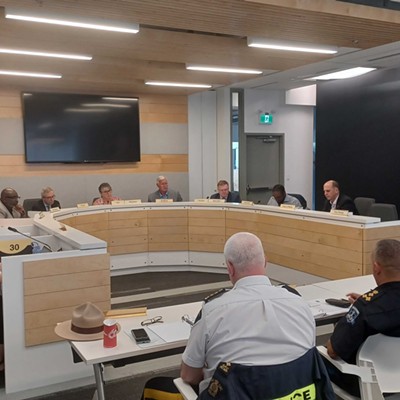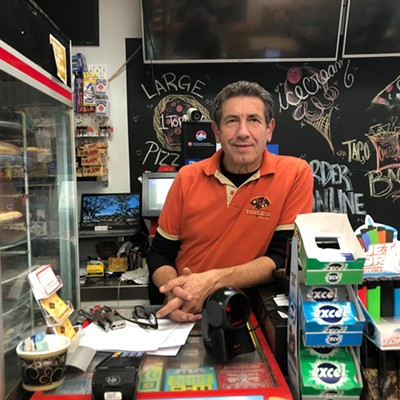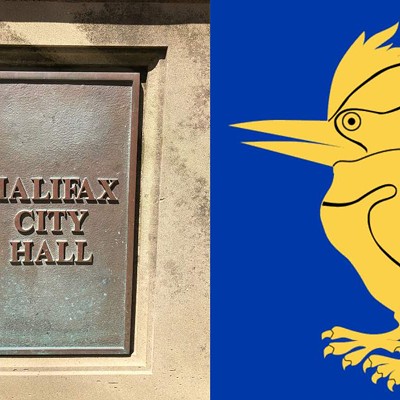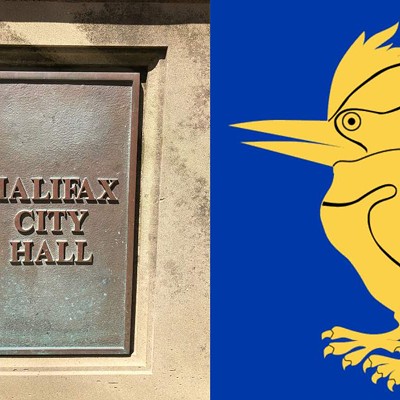Halifax city council voted at its Tuesday meeting to allow people without a home to sleep in parks legally. This change was specifically presented to council because changing the bylaw for park use “is the only legislative or administrative option that we have,” said Max Chauvin, parks and recreation special projects manager in his presentation. So council unanimously approved four sites for unhoused people.
Two of the sites are in Dartmouth: Green Road Park and a site the city calls the Geary Street green space. The other two are in Halifax: Lower Flinn Park on the Northwest Arm, and a Barrington Street green space. In total, 32 tents are legally allowed at any time in the four parks. (The city’s map, pictured above, shows where the sites are and how many tents are permitted at each.)
Here’s some context on the HRM’s current unhoused situation. A point-in-time survey completed in April 2022 identified 586 people who were unhoused. HRM’s “by name list,” i.e. people who have specifically requested housing help, grew 12.6 percent to 616 people. Indigenous people are less than seven percent of the city's population, but 22 percent of the unhoused population. People who are African Nova Scotian, Black, Caribbean or of African descent are four percent of the city’s population, but 15 percent of the unhoused population.
“The first step is prevention,” says Chauvin. “The best soluton to homelessness is not to have people fall into homelessness.”
One of the biggest frustrations for councillors is they have very little if any power to prevent homelessness, but their constituents expect them to be able to. As much as council can make sure city contractors or employees have a living wage, it can’t change labour laws to make sure everyone has a living wage. Councillors also can’t implement rent control. All they can do are things like a landlord complaint registry or emergency housing.
Chauvin outlined a plan for police to be the option of last resort, and said the plan is to not evict anyone with no place to go. But he also mentioned that police have to respond if called. If a busy body nosy neighbour calls police on an unhoused site, the police have to come.
“The last thing we want to do, very last thing we want to do, is physically remove someone from their site,” Halifax Regional Police chief Dan Kinsella told council. “We will respond as required and investigate any criminality and deal with that.”
One of the most frustrating things about the debate was listening to council talk about the city’s unhoused population as a problem that needs to be solved, instead of as human beings crushed by an unforgiving capitalist system that forces people to work for the chance to earn the necessities of life. A system that mercilessly punishes those who slip up. A system run by people who are in the “home is where the heart is” wine mom wall art demographic, but then refer to unhoused people’s homes as “sheds.”
How are people being crushed by the system supposed to ensure they are treated equitably when councillor Trish Purdy—whose district does not have any of the proposed sites—says things like: “I don’t see municipal parks as a good solution at all for our homeless population for many reasons, but a big one is the surrounding residents and surrounding businesses.” Or asking if the city will have a way out of this “because once we allow the use of municipal parks, how do we then move forward and reclaim municipal parks back for public use?“
Unhoused constituents are still your constituents. Unhoused members of the public are still members of the public. This plan is using public parks for the good of the public.
An elected public servant like Purdy needs to understand that.

